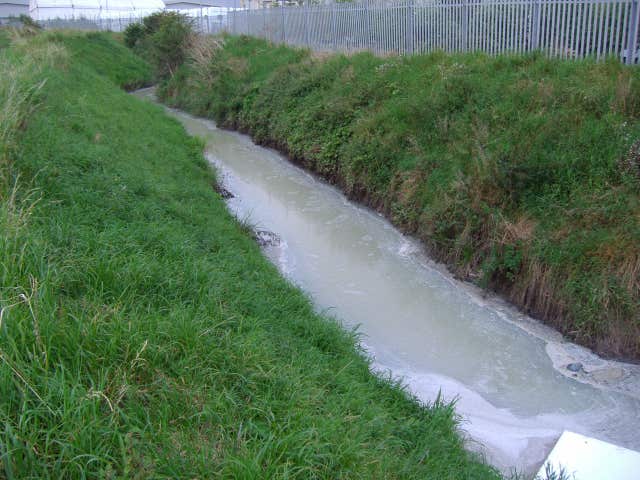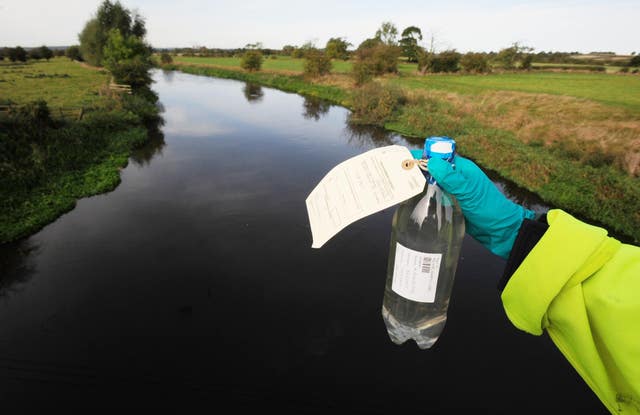
Nearly nine out of 10 rivers in England fail to meet standards for good environmental quality, a report from the Environment Agency warns.
Publishing the report, agency chairwoman Emma Howard Boyd said there were “too many serious pollution incidents” which could harm wildlife, the environment and people, with 317 into water bodies in 2016.
She called for tougher penalties for polluters, and for farmers and water companies to do more to protect England’s precious water resources.

The study also revealed that nearly half of groundwater aquifers, which can be important for drinking water supplies, will not meet good chemical status by 2021, often as a result of nitrates from agricultural fertiliser.
Some 86% of rivers had not reached good ecological status in 2016, with the main issues facing water bodies including pollutants from agriculture and rural land management, urban areas and run-off from roads.
And there were “unacceptable levels” of phosphorus in more than half of English rivers, usually due to sewage effluent and pollution from farmland, which can choke wildlife as it causes algal blooms which use up the oxygen in water.
Over the last decade the number of serious water pollution incidents from water companies has remained broadly the same, about 60 a year, or more than one a week, the report said.

Ms Howard Boyd said: “Water quality is better than at any time since the Industrial Revolution thanks to tougher regulation and years of hard work by the Environment Agency and others.
“But there are still far too many serious pollution incidents which damage the local environment, threaten wildlife and, in the worst cases, put the public at risk.
“I would like to see fines made proportionate to the turnover of the company and for the courts to apply these penalties consistently. Anything less is no deterrent.”
The Environment Agency said households and businesses must do more to keep plastics, fats and chemicals out of drains, and water companies must continue to reduce pollution from sewers and treatment works.
And farmers must manage land responsibly, using fertilisers and pesticides with much greater care, especially as the Government is considering replacing subsidies with new payments to reward environmental and public benefits.
The State of the environment: Water quality report found that in 2016, three-quarters of the tests the Environment Agency had taken to measure the health of rivers were rated good.
But only 14% of rivers reached the standard of “good ecological status” overall, because if one test comes back as a failure, the whole water body fails to obtain good or better status.
There is better news for bathing water quality, which has improved over the last 30 years, with 98% passing minimum standards and almost two-thirds (65%) reaching “excellent” grades in 2017.
The report also warned population growth, climate change, emerging new chemicals, plastic pollution, nanoparticles and fracking all presented potential future threats to water quality.


Comments: Our rules
We want our comments to be a lively and valuable part of our community - a place where readers can debate and engage with the most important local issues. The ability to comment on our stories is a privilege, not a right, however, and that privilege may be withdrawn if it is abused or misused.
Please report any comments that break our rules.
Read the rules here